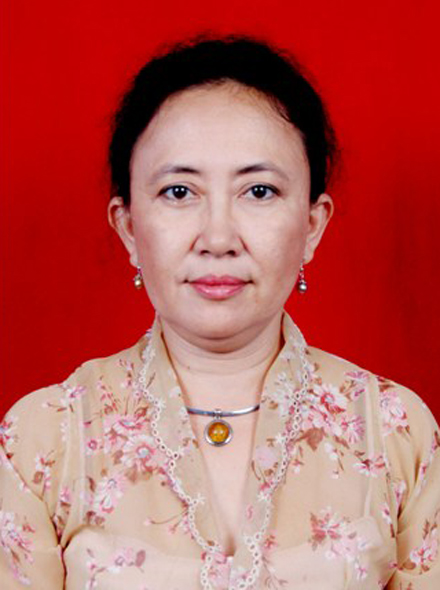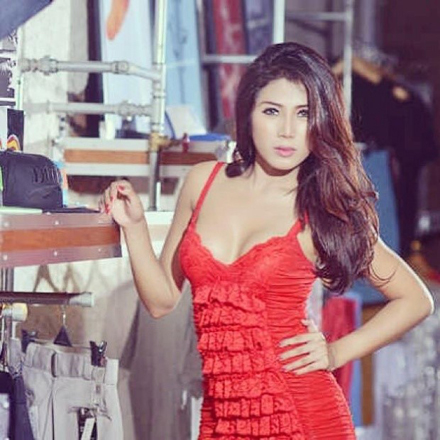In Indonesia, patriarchal media representations restricts coverage of quality female candidates, writes Evi Eliyanah.
This year, 2,467 women ran for legislative seats in the DPR, which makes up 37.01% of the total candidates. Partly, it owes to the affirmative action stated on Undang-Undang No 8/2012 on General Election which requires each political party participating in the legislative election to nominate enough women to make up at least 30% of their candidates.
While the quota was reached, the women who received coverage in the Indonesian media resulted in a distorted representation of female legislative candidates. The key attributes portrayed were physical beauty, controversial previous careers, scandalous marital affairs, and dubious campaign methods. These stories have created a monolithic representation of female candidates and outweighed the more important achievements made by female legislators so far. Voters were left clueless as to who quality women candidates were.
Quality candidates such as I Gusti Agung Putri Astrid Kartika of Indonesian Democratic Party -Struggle (PDIP, Partai Demokrasi Indoesia – Perjuangan), who represented a Bali electorate, hardly made the news, despite her longstanding career as a human rights activist. Coverage about her in relation to her candidacy has mostly been from blogs, instead of mainstream media outlets. Indeed, she is not a photo ‘babe’, let alone pretty. Her track record in human rights activism does not seem to be as newsworthy as good looking female celebrity candidates.
Having popular female celebrities in politics is now a common practice not only in Indonesia, but also worldwide. However, media representations have given more weight to these celebrity-come-politicians, particularly those with controversial previous careers and/or scandalous marital affairs. DestiaraTalita (Tata) and Camellia Panduwinata Lubis (Camel Petir) of Indonesian Justice and Unity Party (PKPI, Partai Keadilan dan Persatuan Indonesia) have appeared in the media regularly. Media coverage about them was circulated extensively throughout social media platforms. These female celebrity candidates were seen as being politically incapable and relying on their physical beauty to garner votes.
Tata is a model for adult men’s magazine who was nominated by PKPI to represent West Java III electorate, and was covered in several mainstream media outlets as a “Caleg Cabe-Cabean” (‘legislative candidates who sells sex’). In addition, her sexual appeal and her lack of political career experience were also the keys of the media’s exploitation of her story. In almost every article about her, the title and content have always labelled her as “(caleg) seksi“. Detik News, for example on 21 January 2014, ran an article titled Jadi Caleg PKPI, Destiara Talita Masih Posting Foto Seksi di Twitter, (‘Becoming a legislative candidate of PKPI, Destiara Talita still posts her sexy photos on twitter’). The content also implies the incompatibility of being a legislative candidate having previously pursued a career as a model in adult magazines. Camel Petir, nominated by PKPI for Jakarta II electorate, was also subject of persistent news due to her career as a dangdut singer with a signature hip-shaking dance movement and previous career as a model for an adult men’s magazine. Like Tata, the term “seksi” has always been attached on media coverage about her. For example, an online news portal, LintasME, ran an article Waduh Foto Tak Pantas Caleg Camel Petir Beredar (‘Oops, Camel Petir’s indecent photos have been circulated on media’) on 29 January 2014. There were several links which summed up the good looking female candidates and questioned if these “pretty faces” would be capable of being involved in politics. One of the links can be traced through Indonesia Media’s website.
Some female candidates were exposed by media due to their controversial, strange and gendered campaign methods. For example, Indri Yuli Hartati of PKPI, distributed bras to her constituents. Hasnaeni (a.k.a Wanita Emas, the Golden Lady), nominated by the Democrat (PD, Partai Demokrat) to represent DKI Jakarta II electorate asked children who were in attendance at her campaign rally in Jakarta to shout: “Jokowi is ugly”. This received a lot of coverage.
Islamic based parties, such as Development Unity Party (PPP, Partai Persatuan Pembangunan) did not escape media scrutiny for scandalous celebrity candidates. Newcomer Angel Lelga made the news often. This was due to her previous career as a dangdut singer, her sexual appeal, and her marital status. She was once married to Rhoma Irama, one of the presidential contenders. Prior to the election, the media was more interested into her current marital status. Furthermore, the controversy and media distrust of her nomination was quite apparent during a top-rating television talk show, Mata Najwa, in which Angel was unable to provide a convincing answer as to issues regarding the implementation of Shariah law in several areas in Indonesia.
Tata, Camel, Angel, Indri and Hasnaeni certainly have the media appeal due to controversies. Qualified candidates who are not celebrities, like IGA Putri A Kartika and Intim Solachma, do not possess such media “selling” points. Moreover, as stated by Chairperson of Parliamentary Women Caucus (Legislation), Reni Marlinawati, often female legislative candidates have less social and financial capital for their campaigns. Creating media campaign is not cheap, so for non-controversial female candidates, their qualified profiles could be only be accessed through personal blogs and websites.
In sum, focusing on these selected women with sex appeal ends up silencing the achievement of other female candidates who are worth voting for. Rarely did a story appear regarding outstanding women legislator political performances. When the affirmative action issue was discussed, it was only in the context of whether the number of female candidates this year was higher than in the previous election. The imbalanced media representations on female candidates aggravate the already low electability of female candidates. The Ministry of Women Empowerment and Child Protection has provided political education for female legislative candidates through seminars and workshops as well as encouraged voters to vote for female candidates for better future of women and children. However, these initiatives were largely undermined by masculine media representations of female candidates in the mainstream, patriarchal media.
The media coverage reinforces doubt on the quality of female candidates as a whole. How could we expect voters to vote for female candidates if capable candidates were not covered, their stories overshadowed by relentless coverage of sexy, ‘controversial’ female candidates who are portrayed as incapable?
Destiara Talita and Camel Petir do not make it to the parliament; their party also fails to meet the parliamentary threshold. To a certain extent, their failure is owed to media representations. Sadly, the impact is not just on the respective female celebrity candidates themselves, but also on other competent female candidates. The latter are overshadowed by the scandals and perceived incompetency of the controversial celebrity candidates. When few women end up being elected to Parliament this year, the patriarchal Indonesian media certainly deserves some of the blame.
Evi Eliyanah is a PhD student in the School of Culture, History and Language at The Australian National University. Her PhD research focuses on representations of masculinity in Indonesian cinema.
 Facebook
Facebook  Twitter
Twitter  Soundcloud
Soundcloud  Youtube
Youtube  Rss
Rss 

